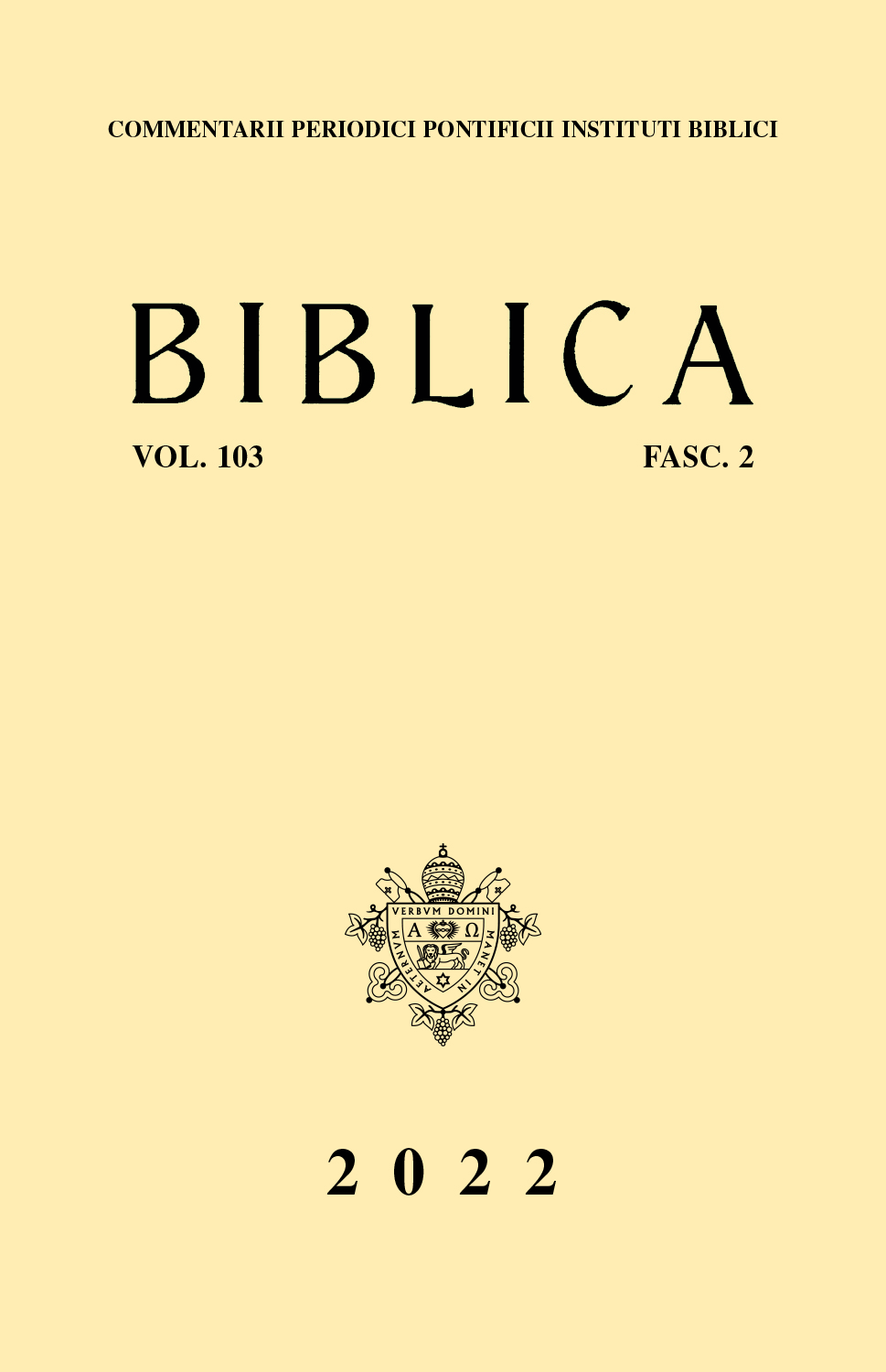 previous article in this issue previous article in this issue | next article in this issue  |

Preview first page |
Document Details : Title: Self-Abasement as an Expression of Thanks in the Hebrew Bible Author(s): BRIDGE, Edward J. Journal: Biblica Volume: 92 Issue: 2 Date: 2011 Pages: 255-273 DOI: 10.2143/BIB.92.2.3188807 Abstract : Self-abasement is commonly used in the Hebrew Bible to express thanks, especially in narrative texts. Using aspects of politeness theory, it is found that, by using self-abasement, a speaker accepts a loss of face and so avoids indebtedness to the hearer, but at the same time increases the hearer’s face by showing how gracious he was to favorably treat the speaker. It is a form of deference, a use of language that increases social distance between hearer and speaker. However, when self-abasement is also used to express thanks to God, avoidance of indebtedness is not in focus, rather God’s magnanimity. In prayer, self-abasement is also used to motivate God to grant the request. |
|


